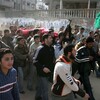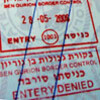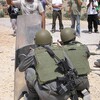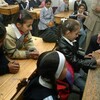
PCHR plans to respond to Israeli Supreme Court's ruling on the Civil Wrongs Law with cases and actions
14 December 2006
Today, 12 December 2006, the Israeli Supreme Court issued a decision invalidating amended article 5c of the Civil Wrongs (Liability of the State) Law that releases the State of Israel from all liability for compensation for any damages caused to Palestinians by Israeli Occupation Forces in areas designated as “conflict zones” in the Occupied Palestinian Territory (OPT). The decision came in response to a petition submitted in September 2005 by nine human rights organizations in Israel, the West Bank and the Gaza Strip. However, the Supreme Court also decided not to strike down another provision (5b) of the law, which provides that Israel does not have to pay compensation for damages caused in military operations since September 2000, for “a citizen of an Enemy State” and “an activist or member of a Terrorist Organization.” Read more about PCHR plans to respond to Israeli Supreme Court's ruling on the Civil Wrongs Law with cases and actions








